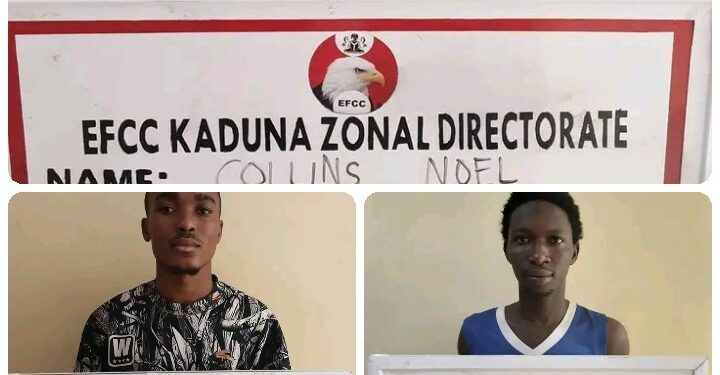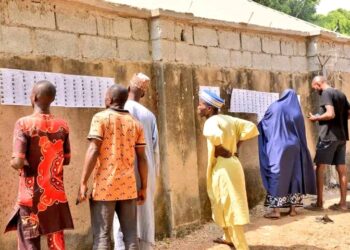Twelve individuals have been convicted by a Federal High Court in the Centre of Commerce (Kano stat) for cyber-related offences, following successful prosecution by the Economic and Financial Crimes Commission (EFCC).
The judgment, delivered by Justice S.M. Shuaibu, came after the EFCC’s Kaduna Zonal Directorate arraigned the accused persons on separate one-count charges bordering on impersonation, cybercrime, money laundering, and unlawful retention of proceeds of crime.
Those convicted are Michael Yakubu, Udo Promise Jonah, Promise Isah Ibrahim, Samuel Odeh, Abdulsamad Muhammad, Agboeze Chibueke Ernest, Ochuba Chigozie, Abu David Eleojo, David Aaron, Chidi Destiny Chidiebere, Collins Noel, and Ola Ajibola.
According to court records, Michael Yakubu impersonated an American citizen on Instagram and fraudulently obtained $300 from unsuspecting users. Ochuba Chigozie was found guilty of retaining $200 traced to an unlawful act. Both men pleaded guilty along with the other ten accused.
The EFCC legal team, led by M. Lawal and M.U. Gadaka urged the court to convict and sentence the defendants after their guilty pleas. Defence counsel appealed for leniency, citing remorse and the absence of prior convictions.
Justice Shuaibu sentenced Chigozie and Eleojo to five years in prison or a fine of N500,000 each. Chigozie forfeited an Infinix mobile phone and $200, while Eleojo forfeited an iPhone 14 Pro Max and $300.
Yakubu, Jonah, Odeh, and Aaron received five-year sentences or N400,000 fines each. Devices and funds recovered from them include iPhones, Samsung and Oppo phones, and over $900 in total.
Chidiebere was given four years or a N400,000 fine, with an iPad Pro and $100 forfeited. Noel, Ajibola, and Ernest each got two years or N400,000 fines. Items surrendered include an Apple laptop, an iPhone 16 Plus, and nearly $550.
Ibrahim and Muhammad received three-year sentences or N300,000 fines, forfeiting iPhones and a combined sum of $375.
All assets and funds recovered from the convicts were ordered to be forfeited to the federal government.
The suspects were apprehended in Nasarawa and Niger States after intelligence reports linked them to a series of online fraud activities targeting unsuspecting victims, both locally and internationally.





